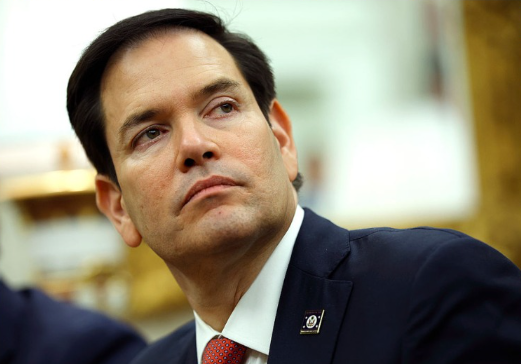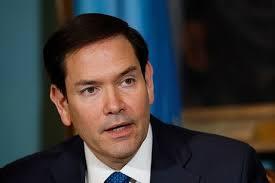Senator Marco Rubio has once again positioned himself at the center of a politically and morally charged debate—this time by reportedly considering a push to revoke visas for individuals labeled as “Islamists.” The term itself is contentious, and the implications of such a policy would be sweeping, raising difficult questions about national security, religious freedom, civil liberties, and the fine line between ideology and action.

While no official bill has been introduced, the discussion alone has sparked considerable reaction. Supporters of such a measure argue that it is a necessary response to rising concerns about extremism and terrorism. They view Islamism—a political ideology that seeks to implement Islamic law, or Sharia, often through undemocratic means—as inherently incompatible with Western democratic values. In their view, allowing individuals who espouse or support Islamist ideologies to enter or remain in the United States represents a serious threat to national security and social cohesion.

From this standpoint, revoking visas is not about religion, but about protecting the nation from political ideologies that could undermine its foundational principles. Advocates argue that the U.S. has every right to deny entry to those who reject or oppose democratic values, especially when those ideologies promote violence or refuse to recognize the legitimacy of secular governance. They cite recent global incidents of religious extremism, homegrown radicalization, and online recruitment by terrorist groups as evidence that preventative action is not only justified but overdue.
However, critics of such a proposal have responded with alarm, pointing out the dangerous ambiguity of the term “Islamist.” While it can refer to political movements that seek to apply Islamic principles to governance, the label is often inconsistently applied and frequently misused. Without a clear, legal definition, any policy targeting “Islamists” risks becoming a blunt instrument—one that could unfairly penalize peaceful individuals, academics, or religious conservatives whose beliefs do not pose any tangible threat.
Civil rights organizations are especially concerned about the implications for Muslim communities in the U.S. and abroad. They argue that such a move would fuel Islamophobia, stigmatize Muslims broadly, and blur the crucial distinction between religious faith and political extremism. Many warn that this kind of policy could have a chilling effect on free speech, religious expression, and academic inquiry, especially when dissenting views are wrongly interpreted as dangerous ideologies.
Furthermore, questions of constitutionality and international law would likely arise if a sweeping visa ban were implemented based solely on ideology. The U.S. has historically resisted banning people for their political beliefs alone, unless those beliefs are tied to illegal activities or direct threats. Opponents argue that punishing people for thoughts rather than actions would set a perilous precedent and undermine the very freedoms the country claims to defend.
In addition to legal and moral concerns, the geopolitical consequences cannot be ignored. A visa revocation policy aimed at “Islamists” could complicate diplomatic relations with predominantly Muslim nations and potentially hinder counterterrorism cooperation. It could also alienate moderate Muslims who are crucial partners in combating extremism from within their own communities.
Senator Rubio has long positioned himself as a national security hawk, and his rhetoric on the issue plays well with segments of the electorate that prioritize border control, immigration restriction, and ideological conformity. For them, this proposal is a logical extension of post-9/11 security policies and a reaffirmation of America’s right to decide who enters its borders.
But even among conservatives, there is debate. Some caution that overreach in the name of security can backfire, eroding public trust and alienating key allies at home and abroad. They argue that targeted intelligence efforts and robust screening procedures are more effective and less inflammatory than sweeping ideological bans.
The debate over Rubio’s potential visa revocation plan encapsulates a deeper tension in American society: how to reconcile security with liberty, and how to distinguish between legitimate ideological concerns and outright discrimination. Whether or not such a policy ever becomes law, the conversation it ignites is a telling reflection of the current political climate—one in which identity, ideology, and immigration are more intertwined, and more controversial, than ever before.






